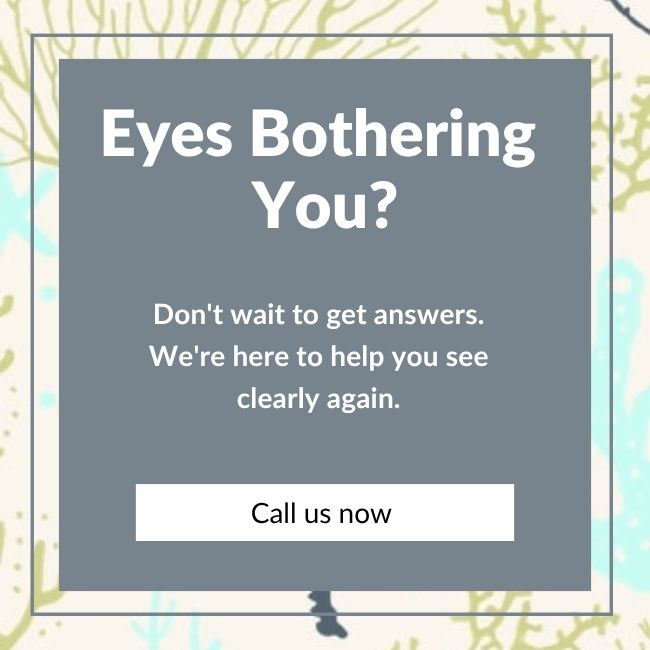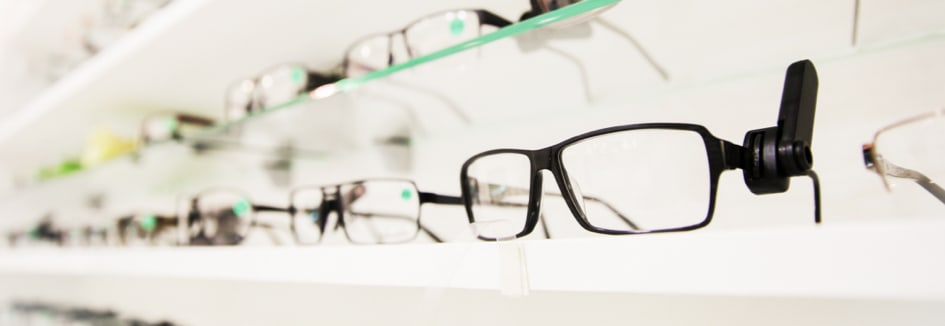It should come as no surprise that having the right prescription for eyeglasses is crucial for optimal vision. However, your eyes are constantly changing, and prescriptions don’t last forever.
An eyeglass prescription is generally good for 1–2 years. Once this date has passed, you can’t use it to buy any new glasses or replacement lenses. The good news is it’s the perfect time for an eye exam! Your optometrist not only can update your prescription, but they can also check your eyes for signs of eye disease and other vision problems.
How to Tell if Your Prescription Is Expired
An eyeglass prescription typically includes an issue date and expiration date. The issue date indicates when the prescription was initially provided by your optometrist, while the expiration date suggests the recommended timeframe for renewing your prescription.
While the expiration date implies the prescription should be updated after that date, it doesn’t mean your vision will have changed by that date. Vision changes can occur before or after the expiration date, as eye conditions can progress gradually over time. The expiration date just ensures you stay vigilant for any signs that your current lenses aren’t providing optimal vision.
If you notice significant changes in your vision, experience discomfort, or encounter other issues related to your eyewear, it’s important to schedule an appointment with your eye doctor. They can assess your vision and determine whether an updated prescription or any other adjustments are necessary. Remember, regular eye exams are essential for maintaining good eye health and ensuring that you have the correct prescription to meet your visual needs.
Blurred Vision
If your vision seems blurry, even when wearing your glasses, it may be time to get a new prescription. However, blurry vision can indicate other health problems. Seeing your optometrist can help rule out more serious causes—or at least uncover them so you can get the care you need.
Headaches
When your lenses no longer work for you, they could be working against you. If you notice you’re getting more headaches, it could be a sign of an outdated prescription. If you’re trying to read or work on something up close through a pair of outdated glasses, your brain may have to strain harder to focus your eyes, leading to a headache.
Eye Strain
If your eyes feel fatigued or strained after reading or working on the computer for an extended period while wearing glasses, it could be due to an expired prescription.
Getting Eye Exams
One of the best ways to stay on top of your prescription changes is with regular eye exams. Optometrists suggest most people get a comprehensive eye exam at least every 2 years, which aligns with most prescription expiry dates.
This is only a guideline, however. Depending on your age, overall eye health, and specific needs, you may have a shorter expiration date or should come in for more frequent exams. For example, both children and seniors can experience rapid vision changes, meaning they should have annual eye exams to keep up with their changing vision needs.

Why Do Prescription Lenses Expire?
An eyeglass prescription is generally good for 1–2 years, but it depends on your unique situation. Some of the factors that can affect the lifespan of your prescription include:
- Age: As we get older, our eyesight can change more rapidly, so older adults may need to update their prescriptions more frequently.
- Eye health: Certain eye conditions, such as diabetes or cataracts, can cause vision changes and require more frequent updates to your prescription.
- Changes in medication: Certain medications can affect vision. So if you start or stop taking medicine with ocular side effects, it’s important to have your eyes checked.
Types of Prescription Lenses
While stylish frames get all the attention, lenses are the actual powerhouses behind your glasses. Lens technology has come a long way in recent years, offering advanced options that provide improved comfort and fit and enhanced visual clarity. Some of the most common types of prescription lenses include:
- Single-vision lenses: These lenses have the same prescription throughout the lens and are used to correct a one vision issue, such as nearsightedness, farsightedness, astigmatism, and presbyopia. They’re an excellent option for those who need a simple correction or are okay with an extra pair of reading glasses.
- Bifocal lenses: Bifocal lenses have 2 different prescriptions in one lens, with the top half correcting distance vision and the bottom half correcting near vision.
- Trifocal lenses: If you thought bifocals had a lot packed in them, trifocal lenses have 3 different prescriptions: one for distance vision, one for near vision, and one to correct the vision in between.
- Progressive lenses: Progressive lenses are similar to bifocals and trifocals but do away with that harsh line between prescriptions. These lenses gradually change prescription strengths from top to bottom and are a great option for those who want a more seamless transition.
Convenient Care & Customer Service
Everyone deserves a great pair of eyeglasses. And a great pair of eyeglasses is one that works for you! Rock optiX has a wide selection of quality, affordable glasses for the whole family.
If you’re not getting the optimal vision you deserve from your lenses, it might be time to check that prescription. Book an eye exam with us and find your new favorite pair today!






















